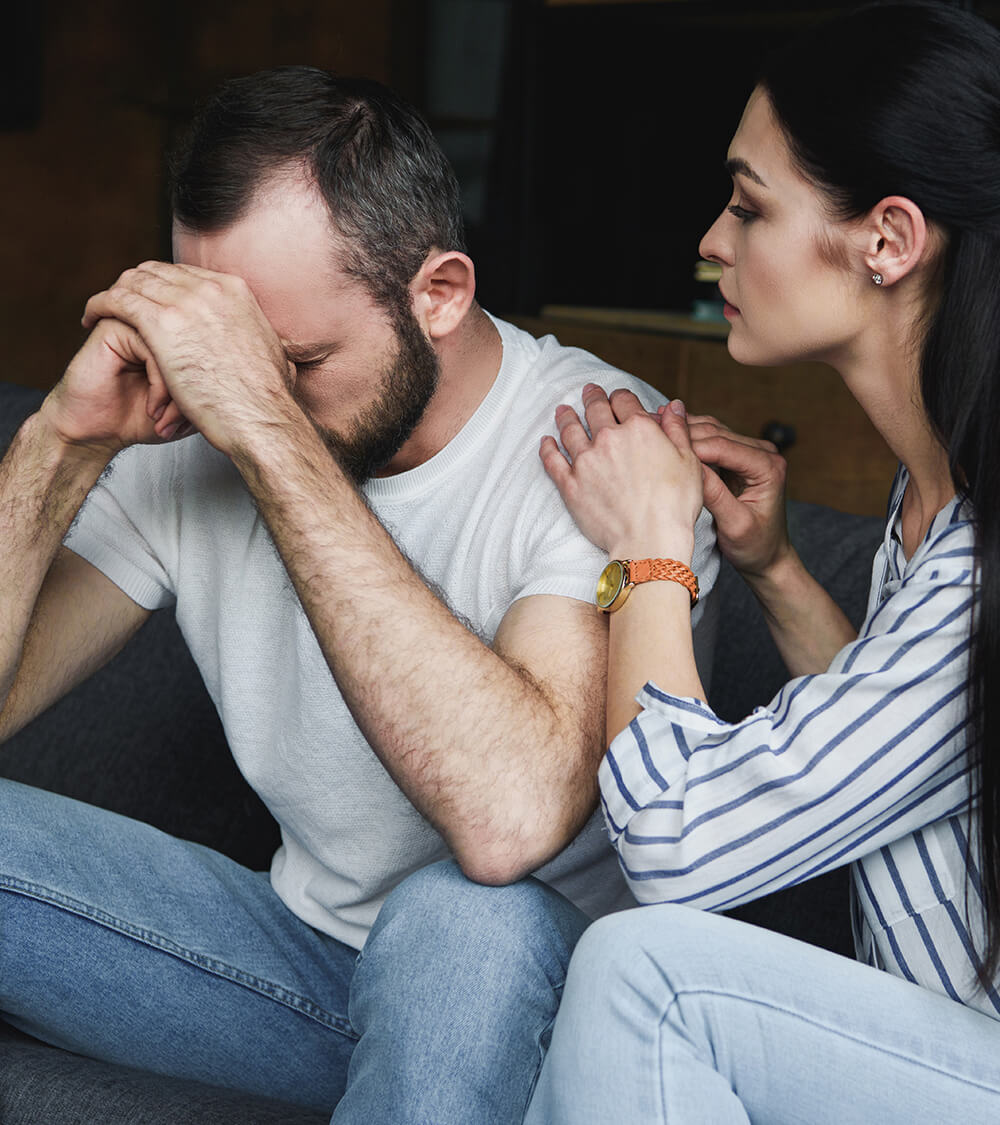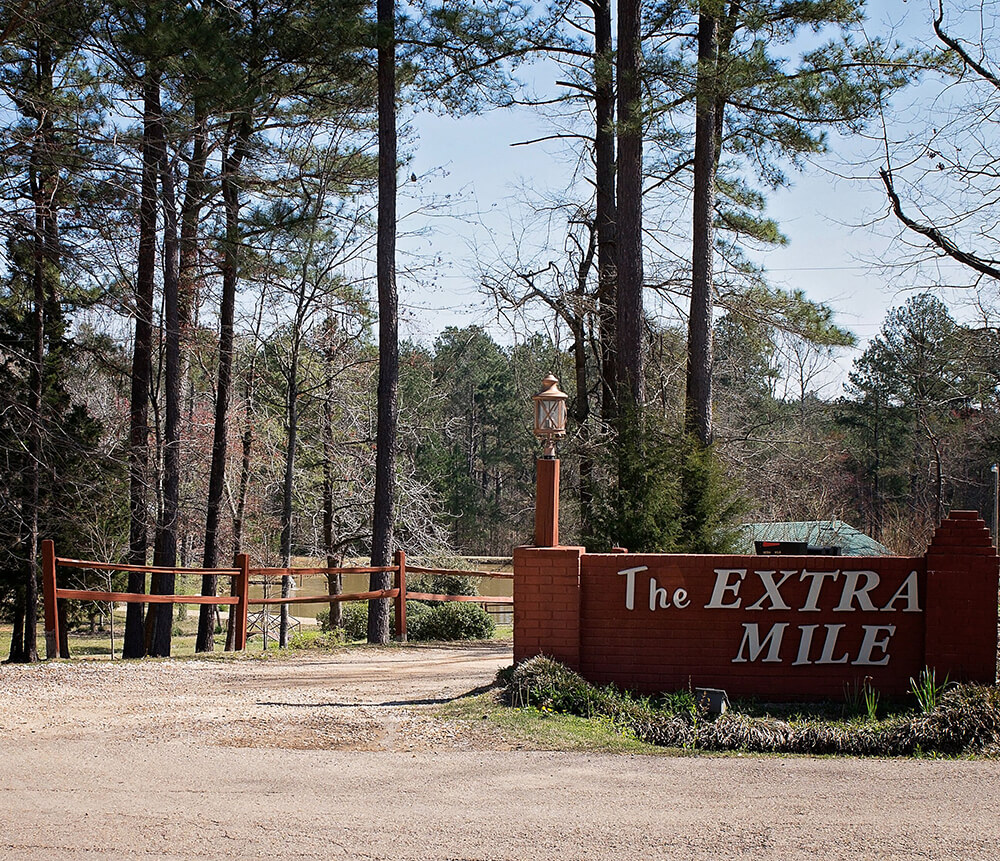Mississippi
Substance Abuse Treatment:
Resources for Friends and Family
Apply For Treatment TodayCall Now · 662-810-4146

Finding Substance Abuse Rehab in MS for a Loved One
Whether you’re new to the world of substance abuse rehab, or you’re trying to find lasting help for someone who has struggled with alcohol or drug abuse for some time, you may not know what to look for in addiction treatment for your loved one. We know that you may not even be certain your friend or family member is struggling with substance abuse — but we know that if you’re visiting this page, you have questions that we can help answer.
At Extra Mile Recovery, we work to include you in your loved one’s healing process, keeping you informed and offering you counseling and relief through our family therapy. If you’re not sure what to do next, we can help you find the answers to some important questions below:
- How do I tell if my loved one needs help?
- What should I look for in addiction rehab?
- Is substance abuse treatment covered by insurance?
- What types of treatment programs and services are offered here?
- Why choose Extra Mile Recovery?
How Can I Tell if a Loved One is Suffering from Addiction?
Just like every addictive substance has its own symptoms, every person will respond differently to substance abuse and addiction. This can make identifying addiction an imperfect science. If you notice that a loved one is exhibiting the following behaviors, they may be struggling with addiction:
Loss of Control
Obsessive thinking, inability to control substance use, reckless behavior, makes too many sacrifices for substance use
Self-Isolation
Hiding substance use, exhibiting less social behavior, denying substance abuse, spending time with new people who enable them
Societal Issues
Problems with work or school, borrowing or stealing money, has financial or legal problems
Altered Thinking
Extreme mood changes, nonsensical thoughts, frequent disorientation, rambling or slurred speech
Low Energy
Doesn’t keep up with hygiene, poor coordination, loss of energy, always tired or sleeping, no longer participates in activities they enjoy
Physical Signs
Differences in appearance, withdrawal symptoms, fluctuating weight and appetite
Schedule a Confidential Phone Consultation
Talk to Someone Who Understands What You’re Going Through
11 Things to Look for in Addiction Rehabs Near You
We wanted to offer some questions you should be exploring as you look for rehab facilities in Mississippi to entrust your loved one to.
How are treatment plans developed? Do they account for personal needs?
Some rehab centers only offer “one-size-fits-all” treatment plans that let some clients slip through the cracks. This is especially common among larger, “institutional” treatment providers.
How does it address mental health?
Because it’s so common to experience mental health issues in addition to substance abuse, it’s likely that the treatment option that best fits your loved one’s needs is one that offers dual diagnosis therapy.
Is there regular therapy?
Everyone responds to therapy differently. A rehab center should provide multiple types of therapies, and provide them regularly. For example, Extra Mile Recovery offers a range of therapeutic techniques, including CBT, DBT, and specializes in trauma-informed EMDR, among others.
Does it offer evidence-based or holistic therapies?
Evidence-based therapies are proven methods of helping people get and stay clean; holistic therapies are open-minded and address body, mind, and spirit. The best treatment centers offer an integrative approach that combines the two to address addiction’s impact on a person’s overall wellbeing.
What unique or specialized services does it offer?
Are there any programs, therapies, services, or combinations of these that are exclusive to this rehab center? As an example, Extra Mile Recovery offers a Chronic Relapse Program, which is a specialized treatment track for those who have not been able to stay sober after completing rehab at other facilities.
Are medical and clinical staff licensed? What is the staff-to-client ratio?
It’s important to make sure that when you’re entrusting a loved one’s health to a team of treatment providers, you trust that team to work for your loved one’s best interests. Treatment also becomes much more individualized and focused when there is a low staff-to-client ratio.
Are friends, family, and others involved in the rehab process?
Are loved ones a part of the recovery plan? Are clients encouraged to be a part of each other’s support networks? Does the staff commit to keeping family members updated on the progression their loved one is making in rehab?
Is it a safe, healthy and positive environment?
Are the facilities themselves clean and comfortable? Is the rehab center gender-specific or a mix of men and women combined? Are there protocols in place to safeguard the wellbeing of clients? Is the staff understanding and do they address your needs from the start? Are treatment plans flexible to changing client needs?
How is group support handled?
Does the provider in question focus on fellowship during treatment? When rehab is done with peer support as a focus, your loved one has the opportunity to lean on this support network after their treatment.
Does it help clients develop life and recovery skills?
Research shows that the most effective addiction treatment programs help clients develop skills like relapse prevention and trigger avoidance, as well as functional life skills including career development and basic nutrition.
Do They Offer Safe Spaces for Men & Women to Undergo Treatment?
It is important to provide controlled environments for clients to heal in their vulnerable state and connect with others like them. This is why gender-split rehab and aftercare options are crucial to a holistic, successful recovery process.
Quick Insurance Verification
Find Out if Treatment is Covered for Your Loved One

The Extra Mile Difference
The recovery programming at Extra Mile Recovery is based on personal experience: our founders have been through rehab and are living successfully in recovery, as have many of our team members. We’ve built our programming on what has worked, what we wished we’d had during our own rehab, and the unique needs of each client.
Through both evidence-based therapies, such as the highly specialized trauma therapy EMDR, and holistic services like yoga and fellowship nature hikes near our facilities, we’re able to craft a treatment plan customized to the needs of your loved one in rehab. We’ll keep them busy and engaged with their recovery in one-on-one counseling, group therapies, optional family therapy, and other recovery-focused activities that make the most of our serene, wooded campuses.
We keep our groups small so we can have staff members dedicated to each individual client’s journey. We make our treatments gendered to preserve a comfortable environment and non-judgmental groups. We provide multiple levels of care, including Detox, 30, 60, and 90-day Residential Inpatient Programs, a specialized Chronic Relapse Program, and gender-split sober living through our two sister facilities in Austin, TX, and an Aftercare and Alumni Program to ensure our clients have the tools and support they need to start life in recovery on the right foot.
Extra Mile Recovery Overview:
Click any of the various links below to learn more about our treatment options, therapy services, facilities, staff and leadership, admissions process, and more.

Additional Information
Questions? We Can Help
Reach Out to Us Today to Get the Answers You’re Looking For.


